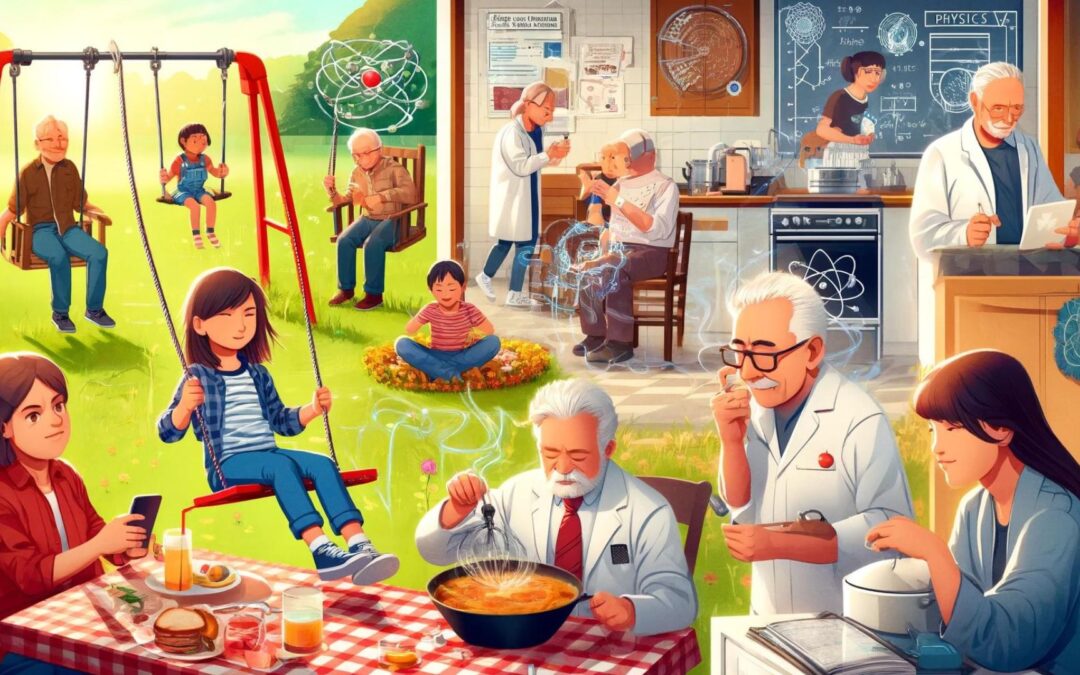Transcript
Disclaimer
I am using an automatic transcript service as it is not possible for me to do it on my own and I cannot afford human transcription at the moment. The service claims to have about 95% accuracy, which means there will still be some mistakes, so my apologies for having a less than perfect transcript, but I hope I can afford human transcription soon and I will solve this problem. However, the service is pretty good, and the transcript is almost perfect.
Transcript
Welcome to a new episode from English plus podcast. Today, we’re going to focus on some vocabulary and the topic we’re focusing on today is from cradle to grave. So we will talk about what happens at the beginning of a person’s life and at the end of a person’s life. So without further ado, let’s start talking about ourtoday’s topic from cradle to grave.
[00:00:28] We will start with what our friend, Dr. Emily tells us about what happens at the beginning of a person’s life, starting from pregnancy onward until a baby is born. So we will listen to that and then we will stop and talk about some words she will mention in her description of what happens at the beginning of a person’s life.
[00:00:49] Pregnancy is the nine month period. When a woman is expecting a baby, it begins with conception when the mother’s egg is fertilized and an embryo implants in the mother’s womb or uterus, most mothers conceive naturally, but some are helped by fertility, drugs, or other procedures, such as IVF as the fetus grows.
[00:01:07] It is fed through the mother’s placenta. After 40 weeks, the mother usually goes into labor. If this doesn’t happen, naturally, she may be induced. Usually a mother has helped to give birth by a midwife. Sometimes a surgeon is needed to deliver the baby by C-section. Okay. So now that we’ve listened to what Dr.
[00:01:26] Emily has to say about what happens at the beginning, starting from pregnancy all the way to giving birth, but let’s stop at the very first word. And that is pregnancy P R E G N a N C Y. Pregnancy. Now, what is the meaning of pregnancy? Well, pregnancy is the noun from pregnant. When a woman is expecting a baby, that means she’s pregnant.
[00:01:51] That’s the adjective and the noun from pregnant is pregnancy. Then we have the next word that we’ll focus on. And that is conception. Now, Dr. Emily said it begins with conception. A conception is spelled C O N C E P T I O N. Now. What is the meaning of conception? Conception is the time when sperm and egg meet and a baby starts to form.
[00:02:16] That is what we call conception. Then we talk about when the mother’s egg is fertilized F E R T I L I S E D. Fertilized. What does that mean? That means when it is made to start developing into new life, that is the meaning of fertilized. And then we talked about the embryo. Now the embryo is a medical word.
[00:02:37] Of course, that is the developing baby. And it is spelled E M B R Y O. And here we said an embryo implants in the mother’s womb or uterus. So implants means to fix itself. It becomes fixed in the mother’s womb or uterus. Now the uterus is spelled U T E R U S. And it means the organ inside the mother where the fertilized egg develops into a baby.
[00:03:05] Now, of course the uterus is a more medical word than womb in everyday language. We use womb more than we use uterus because uterus remember is a medical word. Then Dr. Emily said most mothers conceive naturally. What is the meaning of conceive and conceive by the way, is spelled C O N C E I V E.
[00:03:25] Conceive that means to become pregnant. And here, you might notice that some of the words are kind of formal or medical in context, but we can use them in everyday language if we want to be formal, or if we want to use some of the medical terms that can be used in everyday language like this one. So most mothers conceive naturally, but some are helped by fertility drugs.
[00:03:49] Now fertility drugs, what are these? These are the drugs that help a woman to become pregnant. These are fertility, drugs, and fertility, by the way, it’s spelled F E R T I L I T Y. Fertility. So some women are helped by fertility, drugs, or other procedures such as I V F. Now IVF obviously is an abbreviation for in-vitro fertilization now in vitro fertilization or in short IVF, which is the more commonly known word.
[00:04:20] It is the process that fertilizes a woman’s egg in a laboratory babies born this way are sometimes referred to as test tube babies. But obviously they’re regular babies. They’re just given a little help in the laboratory, but they’re completely regular. We’re not talking about cloning here. Don’t mistake, IVF for cloning at all, cloning is a totally different story.
[00:04:40] And it’s against a lot of people’s beliefs, but IVF is totally okay. Totally normal, but that is the process in vitro fertilization. I think Dr. Emily continued on and talked about as the fetus grows. Now, the fetus, which is spelled F E T U S or F O E T U S. The fetus is what the embryo developing in the uterus is known as from eight weeks onward.
[00:05:04] When it is eight weeks old onward, it is known as the fetus. So as the fetus grows, it is fed through the mother’s placenta. Now, what is the placenta? That’s the organ connecting the developing baby to the mother and giving it food. And it’s of course, very important for the baby to grow. So that is the placenta, which is spelled by the way, P L a C E N T a.
[00:05:28] Now after that, after 40 weeks, the mother usually goes into labor. What is the meaning of goes into labor? Now that means goes into the last stage of pregnancy where the womb starts, the process of pushing the baby out of the body. That is what we call goes into labor. If this doesn’t happen naturally, she may be induced.
[00:05:51] Now induced is spelled I N D U C E D. What does that mean? She may be induced if this doesn’t happen. Naturally, she may be. We’re talking about the mother here be induced. What does that mean? That means be helped medically to start the process of labor. And the noun of that is induction. Usually a mother is helped to give birth by a midwife.
[00:06:13] Now to give birth, obviously is to have her baby. We can say, give birth or to have the baby. What is the meaning of midwife, mid wife? What does that mean now? That is a person medically trained to help women when they are giving birth. So it’s not anybody. This is a person who’s medically trained to help women when they are giving birth.
[00:06:34] But this person is not a doctor, but an essential person in the process of giving birth. Then Dr. Emily continued and said, sometimes a surgeon is needed to deliver the baby by C-section. Now, first of all, what’s the meaning of deliver. That means to help the mother to give birth the delivery. That’s the noun of it, the delivery and then the baby by C-section.
[00:06:57] What is the C-section? Now? The C is short for caesarian. Caesarian sectionor for short C-section that’s the operation in which the mother’s abdomen and womb are cut open to allow the baby to be removed. So here we have a lot of details about what happens at the beginning, and it’s always interesting and important to know what happens and to know how we can describe this thing.
[00:07:23] And now before we continue on, listen, what happens at the end? Let me talk about one more word that is commonly used. When we talk about, giving birth and pregnancy that is expect, but you have to be careful how to use it expect when it means expect a baby that’s only used in the continuous form.
[00:07:40] So we say, for example, Helena and her sister are both expecting, not expect. We don’t use it in simple form. If you use it in simple form, you have to follow it with something else, expect something to happen, et cetera. But when you just say she is expecting period, that means she is expecting a baby to come.
[00:07:59] That means she’s pregnant. All right. So with that being said, let’s move on and listen to Dr. Emily as well, talking about something else. That’s not. Medical but just talking about what happens at the end of life. So we talked about from cradle, let’s go on and talk about to grave. But before we do that, let me remind that you can find exercises, PDF, downloadable, worksheets, the transcript of the episodes, all in a custom post created for every single episode, we create in English plus podcast.
[00:08:26] You will find the link to the post in the description of the episode. So take the link and take your English with it to the next level, because if you want to practice. And take your English a step further. It’s always a good idea to practice more. And we got you covered. We have everything you need on our website, English plus podcast.com.
[00:08:42] And if you like the content we’re creating and you would like to support us, you can do that by taking the second link you can find in the description. And that will take you to our Patreon page. Go to our Patreon page, become a patron of English. Plus help us create more content and reach more people.
[00:08:57] Now that being said, let’s move back to Dr. Emily and this time she’s not talking about what happens at the beginning. She’s going to talk about what happens at the end. So let’s listen to her and after she finishes, we’ll do exactly what we did with the story of the beginning. We’ll stop and talk about keywords.
[00:09:14] She will mention in how she describes what happens at the end. Let’s listen to her. More and more people these days are living to a ripe old age. My aunt, for example, that’s my late father’s sister is 93. She’s been a pensioner for more years than she worked. She lives in sheltered accommodation, but she’s not at all Daughtery or Gaga.
[00:09:35] She’s lucky still to have all her wits about her because a lot of elderly people develop dementia. Funerals are changing a lot too. I went to one recently where there was a coffin in the colors of the dead man’s football team. And at the wake, his sister told me she put it in her will, that her own ashes are to be sent up in a rocket funerals.
[00:09:53] Now are often more about celebrating a person’s life rather than just about morning. As for me, I think I’d prefer an ordinary cremation, but then I’d quite like to have my ashes scattered at sea as I love sailing. All right. So here she talked about what happens at the end, and it’s not about just medical stuff or things, but she’s talking about what happens at the end of people’s lives, the funerals, et cetera.
[00:10:18] And even she talked about her own preference of what should happen to her at the end, which we surely hope it’s not going to happen for her, not for a very long time, but now let’s focus on what she says and let’s stop and talk about some of the key words or phrases that she used. She said more and more people these days are living to a ripe old age, ripe old age.
[00:10:40] What does that mean? Now? That means living well into old age. Now usually used in this phrase to live to a ripe old age. And that means you live to an old age and you live well in good health. That’s the meaning of living to a ripe old age. And she talked about her and she said, my aunt, for example, that’s my late father’s sister is 93.
[00:11:01] Now, when we say my late father’s sister, what does that mean? When you say my late father, my late uncle, my late grandfather, that means now dead. And that is a very polite word to say, instead of just saying dead, you wouldn’t want her to say that’s my dead father’s sister. I mean, that’s kind of harsh. To direct a nicer word to use is late.
[00:11:24] My late father’s sister. So late simply means now dead, but it is a nicer word to use. Not as harsh as dead. Then she continued on and said, she’s been a pensioner for more years than she worked. Now, the word here is pensioner P E N S I O N E R. What is the meaning of pensioner? That means an elderly person receiving an old age pension from the state that is a pensioner that happens after you retire.
[00:11:52] Then she continued on and said she lives in sheltered accommodation, but she’s not at all. Daughtery or Gaga now. First let’s talk about sheltered accommodation. What is the meaning of sheltered accommodation? That means special housing, usually for old people where care staff also live. So with some people who will take care of old people, and then we talked about, but she’s not at all Doddery or Gaga.
[00:12:18] What is the meaning of Doddery , which is D O D D E R Y. Now Doddery means weak and unable to walk. Well, Usually because of old age now that’s of course, informal and Gaga is not about the physical part, but Gaga is about the mental part. So that means unable to think clearly because of old age now that is informal and offensive.
[00:12:41] So be careful don’t use that. To describe people because sometimes that happens at old age and it’s totally normal. And we have to understand this because every one of us is going to be old one day, if we’re not old already. And we have to respect that sometimes this happens, some people can go Doddery or Gaga, but we wouldn’t want to use these words.
[00:13:03] I’m just trying to explain what Dr. Emily said, Daughtery and Gaga, but try not to use Gaga, specially not to make fun of anybody because that’s. Completely offensive, please don’t do that. Apart from that, let’s continue. She said she’s lucky still to have all her wits about her. Now that is an expression to have all your wits about you now to have all her wits about her.
[00:13:27] What does that mean? That means she’s still able to think and react quickly because she said a lot of people or a lot of elderly people develop dementia. Now dementia, which is D E M E N T I a. That is an illness that causes problems with memory loss and the brain stops functioning as it used to do. And that is completely normal.
[00:13:50] It doesn’t happen to all people, but if it happens, yes, people will start losing some of their mental power and their mental functions. And it comes with memory loss. Dr. Emily also talked about funerals. She said funerals are changing a lot too. She said, I went to one recently where there was a coffin in the colors of the dead man’s football team.
[00:14:12] Now, what is the meaning of a coffin, which is C O F F I N. The coffin is the box where the dead person is put. And then she said, and at the wake his sister told me that she put it in her, will, that her own ashes are to be sent up in a rocket. Oh, here we have three words that I would like to tell you about, first of all, at the wake W A K E.
[00:14:35] What’s the meaning of wake Now the wake is the gathering of family and friends after a funeral. That’s what we call the wake . And then, uh, the sister told her about the will. What is the will? Now the will is the legal documents saying what is to happen to your possessions after your death? And like here, you can mention other things as well.
[00:14:55] Like her own ashes, the ashes of course are the remains of a body after cremation. Now we will talk about cremation just in a minute. Now, here are the will, can include as well. What happens to a person’s ashes after he or she is dead, then she continued on and talked about how funerals nowadays are more about celebrating a person’s life rather than just about mourning and mourning here is not just like good morning.
[00:15:20] It’s spelled differently the same pronunciation, but the spelling is different morning here. We’re talking about M O U R N I N G. It’s not M O R only M O U R that’s morning. Well, what does it mean now? Mourning means expressing sadness after someone’s death and the people who are mourning can be called the mourners.
[00:15:39] So here there’s an interesting thing, Dr. Emily said, and to be honest, I kind of like it funerals now are often more about celebrating a person’s life rather than just about mourning. Of course, there is going to be a mourning part. That is inevitable, but why can’t the funeral be at least part of the funeral be about celebrating a person’s life.
[00:15:59] Well, that’s an interesting idea, but anyway, our word is mourning. And then Dr. Emily talked about something else. She said as for me, you know, for her, she said, I think I’d prefer an ordinary cremation. Now, what do we mean by cremation? Cremation is the service at a place called a crematorium where a dead body is burned.
[00:16:19] Now that is as opposed to a burial where the body is buried in the ground. So here, it depends different cultures have different kinds of burial or cremation, or even some other types, but maybe for you, it’s kind of offensive to even talk about cremation, but at least here, I’m not saying what is right and what is wrong.
[00:16:38] Of course I respect everybody’s tradition and culture. And for that matter, all we’re doing here is just to explain these words. So cremation is when a dead body is burned, as opposed to a burial where the dead body is buried in the ground. And finally she said, but then I quite like to have my ashes scattered at sea as I love sailing now because she chose cremation.
[00:17:01] So we have ashes or, uh, there will be ashes. She said, I like to have my ashes scattered. Now scatter is spelled S C A T T E R E D here, because we use ed in the end, but scatter is the verb. And that means to spread around, to spread around at sea because she loves sailing. Now that being said, we also heard what Dr.
[00:17:24] Emily had to say about what happens at the end. Now, before we finish this episode, I would like to talk about the word death or death itself in different registers and these words or these expressions I’m going to mention now are very important because sometimes you may want to talk about death, or you may want to mention death in your conversation, but it might not be that appropriate to just say death.
[00:17:45] There are other words, but first let’s start with expressions of sympathy. If you want to express your sympathy, when someone dies, what do you say? You can say, please accept my condolences. And that is a formal way, of course. And if you want to be formal, because you know, in those situations, sometimes you want to be formal.
[00:18:05] So if you want to be formal, You can say, please accept my condolences condolences, by the way, is spelled C O N D O L E N C E S. That’s condolences. Or you can say I was so sorry to hear or to learn of your loss. That’s a little bit informal. You might use that if you want to comfort, or if you want to express your sympathy to people, you know, now here it’s your choice.
[00:18:31] Whether you want to say, please accept my condolences or I’m so sorry to hear or to learn of your loss. That’s also very respectful, but it’s a little bit more informal. And now let’s talk about euphemisms for, to die. Now, of course you can use this person died, but there are other ways that are a little bit lighter to use.
[00:18:53] And you know, I’m not going to say more diplomatic, but I’m going to say less shocking than the word die. I mean, he died. That’s kind of neutral as if you were reporting the death of somebody. And even when they report the death of somebody, they might use one of these euphemisms. You might use to pass away or to pass on or to pass over.
[00:19:13] You can say he or she passed away. That’s a lot lighter and a lot less shocking than the word die. And just saying he or she died just like that. If you want, of course, to use that, if you want to use the direct word to die, of course, it’s also correct. But I’m just giving you other options that you can use if you would like to use them.
[00:19:35] When you want to talk about a person who died and then we have very informal expressions for being close to death. Again, remember, these are very informal expressions. Like when you say to be at death’s door or to be on your last legs. Now we often use that about machines. So if you want to use it about machines, that’s fine.
[00:19:54] No problem about saying that for machines, but be very careful if you want to use that about people, because that is very informal and that can be very offensive as well. You don’t want to use that to talk about people, but if you want to talk about the machines, like for example, you can say my laptop’s on its last legs.
[00:20:11] So it’s close to death. That might be even funny, you know, just to use it, to talk about machines now, newspaper words, let’s talk about newspaper words, because you can find these words. When you read newspapers. Now, newspapers referred to dead people as fatalities. Sometimes they say perished for died.
[00:20:28] They say slaughtered for violently killed. We have some legal words. We’re still talking about death in different registers. Remember? So we talked about newspaper words. Let’s talk about some legal words. For legal words, the dead person is called the deceased and to leave something in a will is to bequeath.
[00:20:47] And the noun is a bequest. If you bequeath your money or property to someone, you legally state that they should have it when you die. And then we have the word to inherit to receive something from someone who has died. And the noun from that is an inheritance and finally to die intestate. That means without having made a will.
[00:21:08] So remember these final words, I mentioned the deceased to bequeath, to inherit and to die intestate. These are legal words. So that being said, I hope that you’ve learned something new today. I know that it might not be your favorite topic to talk about, but you know, that’s life. We have to talk about death at times, and it might be useful to learn some words to use, to describe these things because that’s part of life.
[00:21:33] And of course the first part was about birth. So you might not as well want to talk about birth in greater detail like Dr. Emily did, but at least you need to understand these things. And sometimes why not? You might even want to use that, especially if it’s happening in your family. Um, you would want to learn about these words because you would want to use them, right.
[00:21:52] But that being said, I hope that you found this episode useful and I will remind you you again, that if you want to take your English to the next level, take the link. You can find in the description that will take you to our website, englishpluspodcast.com. With that being said, this is your host, Danny.
[00:22:06] I would like to thank you very much for listening to another episode from English plus Podcast. I will see you next time.












0 Comments